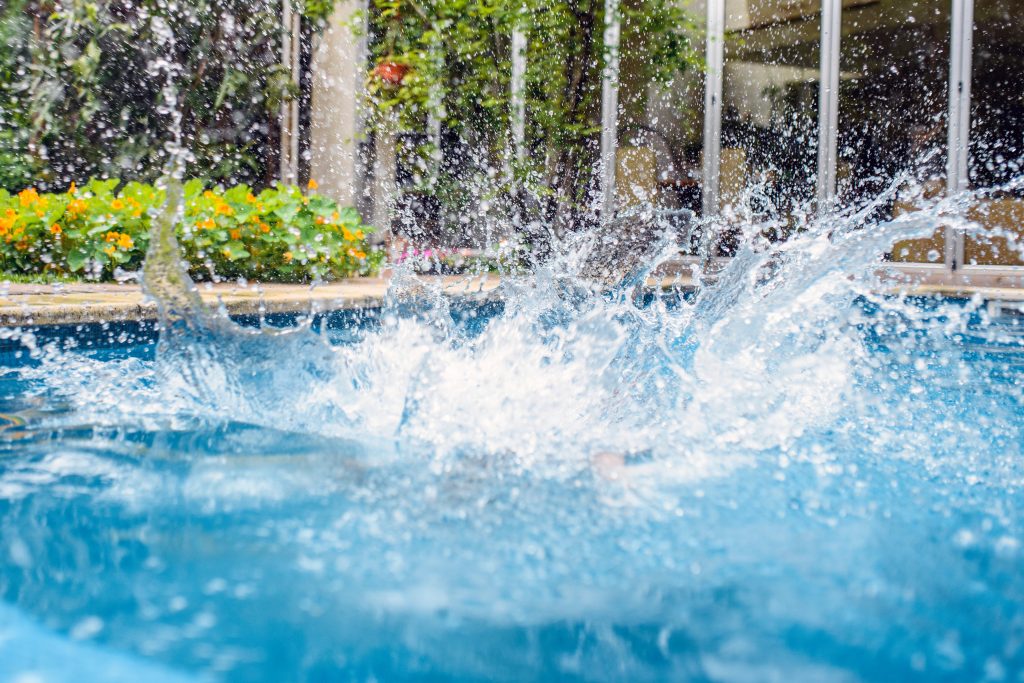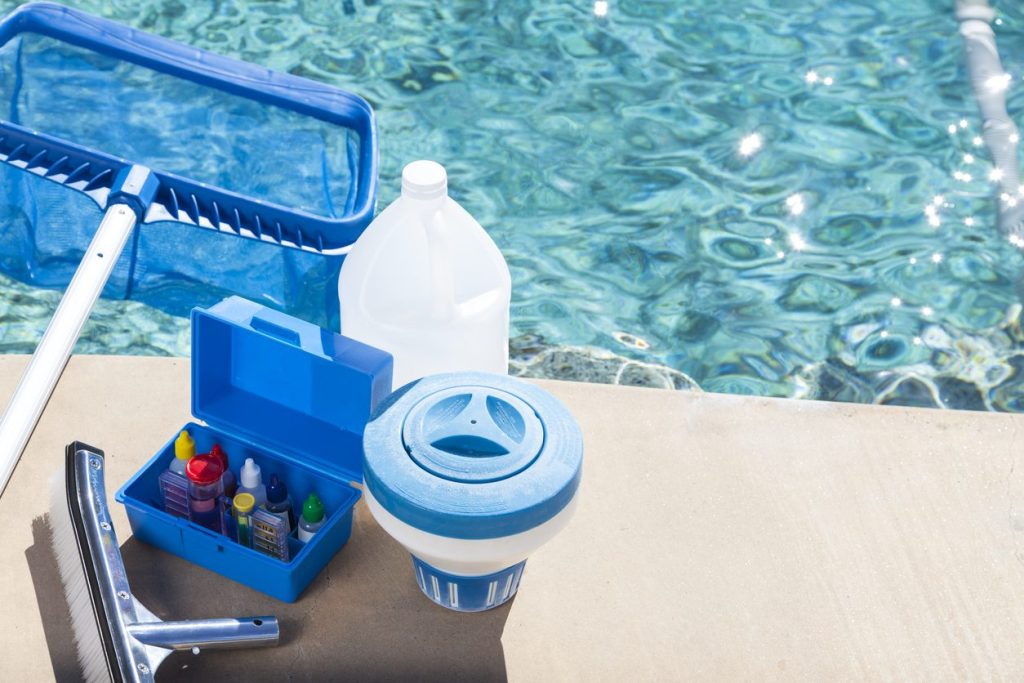The Ultimate Pool Guide
With triple-digit summers, it’s no surprise that there are an estimated 801,000 residential pools in Texas — the third leading state in residential pool ownership, just behind California and Florida. Considering taking the plunge into pool ownership yourself? Here’s everything you need to know to keep your pool safe and pristine.

Sanitize With a Saltwater or Chlorine System
There’s a lot to consider when designing your pool. Do you want an above- or in-ground pool? Should it be heated or not? However, one of the most important decisions is how to sanitize your pool chemically. The most popular options are saltwater or chlorine systems. Traditional chlorine sanitation kills algae, germs, and bacteria well, but it requires frequent monitoring and adjustments to ensure the chemicals won’t irritate your eyes or skin. Saltwater pools require less maintenance, but the initial setup can be expensive, and the salt might naturally corrode parts of the pool over time.

Make Swimming Safety a Priority
Pools offer epic fun in the sun, but they come with risks. Drowning is the leading cause of death in children aged 1–4, according to the U.S. Consumer Product Safety Commission. Pool safety should always be a priority. Keep a pool safety kit handy, featuring a first-aid kit, scissors to cut hair or clothing caught in a filter, and a flotation device. Before you invite friends and family with children or pets over for a dip, ensure your pool is fenced in (with a self-closing fence at least four feet high), and electrical devices are cleared out of the way to prevent electrocution.
Even if your kid knows how to float and dog paddle, formal swimming lessons can go a long way to enhance their safety in the water at home, water parks, and on open bodies of water. Finding a high-quality swimming school or coach near you is relatively easy, and some recreation departments offer free lessons.

Keep Your Pool Sparkling Clean
From pH monitoring to filtration tune-ups, even the most basic pool requires regular maintenance to keep swimmers safe and costly repairs at bay, while extending its lifespan. And when the temps drop, your pool still needs a little extra care. Learn the ins and outs of how to winterize your pool to prevent broken pipes during the colder months.
Stay cool outside and inside the house this summer with our guide to beating the heat pioneer-style.
© 2025 Texas Farm Bureau Insurance



